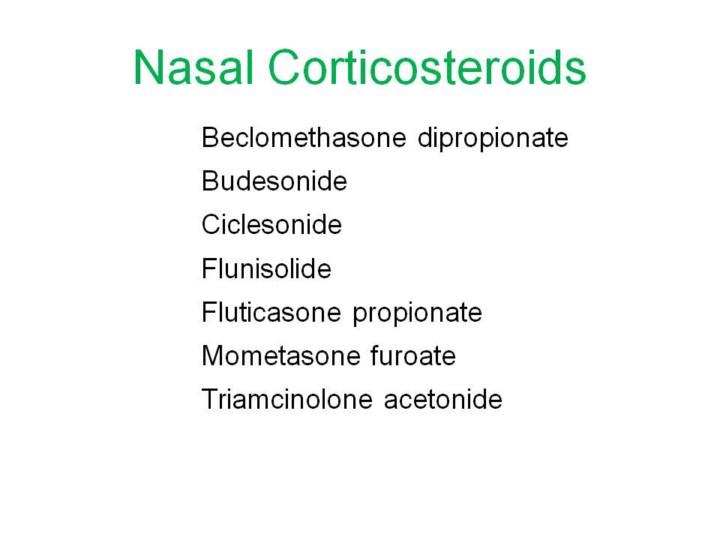 |
Nasal steroid sprays are highly efficacious in treating allergic rhinitis.
They control the 4 major symptoms of rhinitis (ie, sneezing, itching,
rhinorrhea, congestion). They are effective as monotherapy, although they do
not significantly affect ocular symptoms. Studies have shown nasal steroids
to be more effective than monotherapy with nasal cromolyn or antihistamines.
Greater benefit may occur when nasal steroids are used with other classes of
medication. They are safe to use and not associated with significant
systemic adverse effects in adults . Glucocorticoids inhibit allergic
inflammation in the nose at many levels. These agents downregulate
inflammatory responses by binding to intracellular glucocorticoid receptors
in the cytoplasm of inflammatory cells. The receptors undergo conformational
changes upon activation, entering the cell nucleus where they bind with
glucocorticoid response elements located on antiinflammatory genes. These
activated genes transcribe messenger RNA for antiinflammatory proteins. At
the same time, activated glucocorticoid receptors suppress the transcription
of most cytokine and chemokine genes
|
